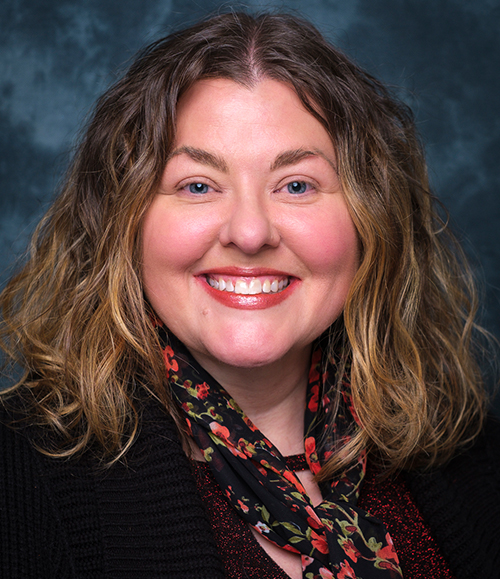Social Science researchers studying transgender and nonbinary healthcare at MSU and the greater Lansing region
June 25, 2025 - Karessa Weir
Between finding providers, dealing with insurance and being far from home, healthcare for incoming college students is tough to navigate for most first-year students. For trans and nonbinary students, the process becomes even more intimidating to find the right place to receive gender-affirming care.
 But a new research project by Sociology Professor Carla A. Pfeffer is collecting the experiences of trans and nonbinary students at Michigan State University and in the greater Lansing area in hopes of improving the process of finding health care and sharing positive resources.
But a new research project by Sociology Professor Carla A. Pfeffer is collecting the experiences of trans and nonbinary students at Michigan State University and in the greater Lansing area in hopes of improving the process of finding health care and sharing positive resources.
“Our hope is that by learning more about what providers are doing to excel as well as where they are currently struggling to meet the needs of their trans and nonbinary student patients, we’ll be able to establish best practices and work toward better, more effective, culturally-competent healthcare service provision for all Spartan community members,” said Pfeffer, who is also chair of the Sociology department.
The MSU project is similar to a prior project Pfeffer undertook at the University of South Carolina. When she moved to MSU, Pfeffer wanted to replicate the experience of studying health care available to both undergraduate and graduate students. But while U of SC keeps all healthcare on its campus, students at MSU are often referred off campus to providers in and around Lansing. This meant Pfeffer had to broaden her research area to include community-coordinated care.
“The literature shows that some of the areas of deepest need in medical education are to improve education and care for trans and nonbinary patients,” Pfeffer said. “Health care provision is localized, which means it is important for us to stay focused on healthcare environments at the point of actual service and care.”
The team, which includes researchers from Sociology, Social Work and Psychology, interviewed 27 students and are now in the process of coding the data. PhD students Sterling Bentley (Social Work) and undergraduate alumna Christine Nguyen (Psychology) are both part of the research team.
“What we are hoping to show is what MSU and the greater Lansing area is doing in relation to trans and non-binary healthcare, and really showcase what is being done well,” she said.
At the same time, they hope to identify gaps in care and services in the region. For instance, currently MSU provides prescriptions for gender-affirming hormone therapy but there are fewer resources for surgical procedures. Similarly, several Lansing area health providers perform “top surgeries” for trans and non-binary patients, but there are relatively fewer local surgeons specializing in other masculinizing and feminizing surgical procedures for trans and nonbinary patients, she said.
“Ultimately, culturally competent care is about saying, ‘Yes. I see you. I see your needs. I will provide you with the high-quality care that you need and deserve,” Pfeffer said. For example, some nonbinary patients may want to get rid of facial hair, grow facial hair, or experience changes in the pitch or tone of their voices but may not wish to take levels of hormones that match their cisgender men or women counterparts. “Ultimately, it’s about providers’ willingness and openness to adjusting care protocols to patients’ needs and goals for their own bodies and lives.”
Pfeffer and her team of co-researchers are examining not only actual healthcare services offered at MSU and in the greater Lansing area but are also studying patients’ descriptions of their providers’ offices and whether front office staff are trained and familiar with the needs of trans and nonbinary patients.
“There are offices which may provide needed services, but when you walk in, you’re misgendered or called by your deadname by office staff or in paperwork. There is considerable need for holistic, whole-staff training to achieve high-quality, culturally competent care for trans and nonbinary patients,” she said.
It’s also about the environments in which you receive care. “When you enter a provider’s office, for example, are the medical gowns all pink? Are only cisgender, white individuals and heterosexual couples people pictured in office photographs and pamphlets? Can staff and providers do more to make their environments more welcoming and inclusive for all patients?” she asked.
“Signals of welcome and inclusivity--through display of pride flags; use of correct names and pronouns, diverse imagery, respectful language, and brochures – are things staff and providers can do to ensure that our healthcare spaces reflect the broad diversity that exists among patients and our community. These intentional efforts can make a world of difference,” she said.
Overall, Pfeffer is hoping to see increased access, availability, and quality of care available to trans and nonbinary MSU students in the region.
“Our trans and nonbinary students shouldn’t have to travel to Grand Rapids or Ann Arbor to receive high-quality, culturally competent healthcare. Doing so is not only emotionally costly, but also more costly in terms of investments in time and finances if you need to find and pay for transportation to receive the care you need” she said. “We want to take what we learn from MSU students and give back to the MSU healthcare community so that we can work together to make the system better for everyone because the consequences of not doing this well are very, very high.”

